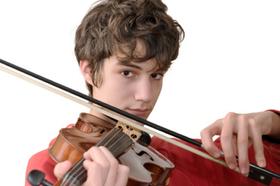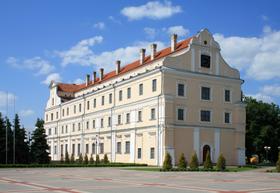Something which intrigues most of us parents when we think about boarding school is the idea that the school provides everything in one very well-crafted package. The academics, the sports, the extracurriculars, and the supervision are all part of the deal. For parents whose careers involve a lot of traveling knowing that their child is fully occupied and properly supervised is reassuring. As you begin to dig deeper into boarding schools and what's involved, you begin to encounter concepts as well as tangible things which in many ways are unique to residential schools. These are what make a boarding school experience so special.
Codes of Conduct
Codes of Conduct in boarding schools have teeth. They mean what they say. They can and will be enforced. Yes, public schools have codes of conduct too; however, the enforcement process can be cumbersome and time-consuming because public school students have constitutional rights. Private school students have rights too. Those rights are spelled out in detail in the contract which you and the school signed. I mention this because you cannot assume anything with respect to the rights your child enjoys in a boarding school. Read the contract carefully. Have your attorney review it. Ask questions. Understand the terms of the contract as it applies to the code of conduct. Finally, explain the consequences of infractions of the school's code of conduct to your child. That said, codes of conduct are one of the reasons why your child will be safe in most boarding schools.
Dorms
Dorms or dormitories are students' living quarters at boarding school. The term conjures up rows of beds and barrack-style living arrangements. That couldn't be further from the truth as most boarding school dormitories resemble apartment buildings. Think back to the dormitory you stayed in during your freshman year at college. Boarding school dormitories will be similar. The major difference is the supervision. In a boarding school, a teacher will also live in the dorm. Unlike resident assistants in college dorms, these faculty members are proactively supervising all the students in their care. They know where everybody is and what they are doing. They take time to listen and be the surrogate parents they are expected to be. Boarding schools take their role as substitute parents very seriously. The result is more peace of mind for you. In the following video, a student at Middlesex School gives us a look at her dorm.
Equestrian
Not many day schools have riding programs. But there are over sixty boarding schools which have riding or equestrian programs as one of the sports which they offer. My point simply is that boarding schools offer uncommon sports such as riding and rowing, and several other less popular sports such as badminton, alpine skiing, fencing, and so on. Yes, you will find football, basketball, field hockey, soccer, baseball and all the other popular sports at most schools. But you will also find the less common athletic activities. So, if riding is your child's thing, be sure to check out some of the facilities these schools have. You can board your own horse at many schools or use one of the horses which belong to the school. Moreover, he will have a choice between English and Western riding. Check out these equestrian facilities.
- Asheville School, Asheville, North Carolina
- Chatham Hall, Chatham, Virginia
- Garrison Forest School, Owings Mills, Maryland
- The Orme School, Mayer, Arizona
- The Thacher School, Ojai, California
Harkness Tables
Here's another item which you won't find in most public schools. And that's a table. A Harkness Table. What's a Harkness Table all about? It's all about learning with the focus on "student-centered, discussion-based" teaching as Exeter's Humanities Institute describes it. This brief video from Lawrenceville School explains the Harkness Table concept.
Standard Oil heir and philanthropist Edward Harkness gave Exeter a substantial gift in the 1930's to be used for oval tables which seat twelve students and their teacher. Harkness sought to reform teaching by replacing the rote method of learning with a discussion-based approach. By placing the teacher at the table with her students, maximum eye contact is maintained. This seating arrangement encourages discussion, collaboration, and, above all, prevents students from hiding in the back of the class.
Media Centers
If you remember, as I do, school libraries as buildings with stacks of books and Dewey Decimal card cabinets, well, things have changed a lot since then. Boarding school libraries are more commonly known these days as media centers. WiFi connectivity in most boarding schools means that you can access materials wherever and whenever you want. The librarian's role as a teacher is even more important these days when it is so easy to copy and paste information from the Web into your term paper without attributing your sources. Boarding school librarians take them time to explain plagiarism before it becomes a problem for their students. Here are some examples of media centers for you to peruse.
Athletic facilities
Soccer fields, tennis courts, football fields, basketball courts, hockey rinks, golf courses, riding stables and rings, gymnasia, squash courts, fitness centers, swim centers, and more. The list of athletic facilities at boarding schools is seemingly endless. The sheer scope and quality of some boarding school athletic facilities rival those of many colleges and universities. Boarding school teachers generally coach teams in their area of athletic expertise. Also, many schools will have athletic professionals administering the athletic programs.
- Canterbury School, New Milford, Connecticut
- Miss Porter's School, Farmington, Connecticut
- Phillips Andover Academy, Andover, Massachusetts
The headmistress of The Ethel Walker School shows you around her school in the following video.
Theaters, chapels, auditoria, art galleries and spaces
Not all boarding schools have chapels. Whether they do or not depends on their religious background and preferences. But most schools have theaters of varying sizes as well as meeting places where the entire school community can gather. Several schools have purpose-built performing arts facilities. The Werner Centennial Center for the Performing Arts at Westminster School is a magnificent example of the genre. The architect described it as follows:
"Situated in a prominent location at the northeastern corner of the campus’s central quadrangle, Centennial Center consciously brings the performing arts into the physical and academic mainstream of campus life. The 30,000 square-foot building includes a two-story lobby, a 400 seat, multiuse Shakespearian-style theater, music and dance studios and rehearsal room, dressing rooms, a scene shop/laboratory and other production support spaces. Particular to the “courtyard” theater form, all 400 seats are within 40 feet of the front of the stage, and there is built-in flexibility for both audience size and style of production. As a result, the theater provides an exhilarating yet intimate experience for audience and performer alike."
Here are some other performing arts facilities at boarding schools for you to peruse.
- Berkshire School, Sheffield, Massachusetts
- Groton School, Groton, Massachusetts
- Groton School, Groton, Massachusetts
Take time to discover the facilities available at the boarding schools on your short list of schools which you are visiting. These facilities are designed to enhance learning, develop athletic abilities, and offer spaces to perform and socialize. They are just a few of the attributes which make boarding schools special.
Questions? Contact us on Facebook. @boardingschoolreview















































